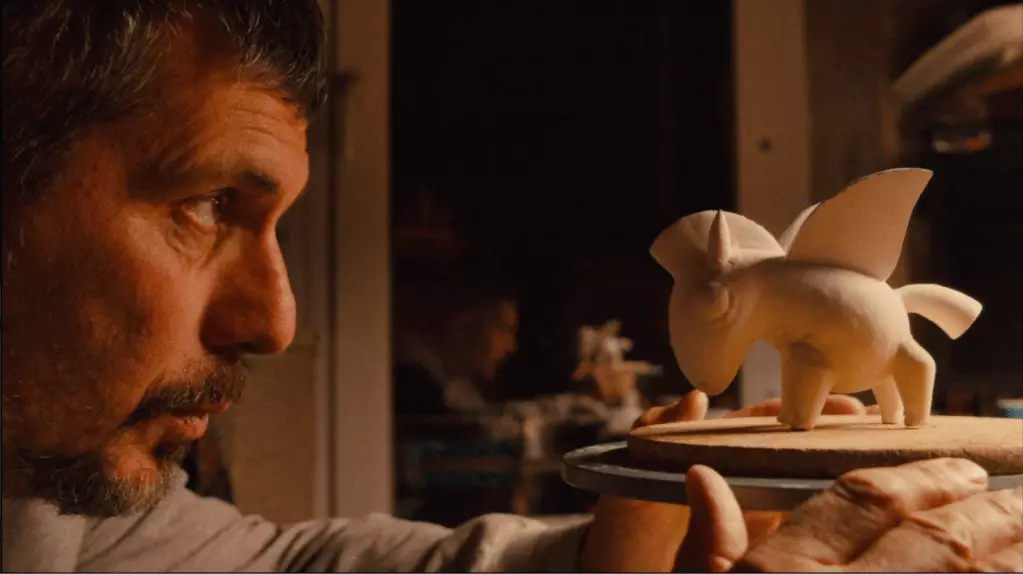The documentary “Porcelain War,” directed by Brendan Bellomo and Slava Leontyev, artfully juxtaposes the fragility and indomitable spirit of Ukraine amid the harrowing realities of war. The analogy of Ukraine as “porcelain” captures its susceptibility to destruction, yet underscores its remarkable resilience. Leontyev, a Ukrainian artist featured in the film, embodies this spirit by choosing to fight not with weapons, but through the power of artistic expression. This choice highlights a transformative philosophy in conflict—art is leveraged as a weapon of resistance, transcending mere representation to become a form of activism.
The film sheds light on how art can serve as a compelling tool in the face of adversity, a sentiment echoed by Guillermo del Toro during a recent virtual discussion. Del Toro’s assertion that “the camera is far more powerful than a rifle” emphasizes the capacity of visual storytelling to influence and inspire. This notion challenges traditional perceptions of resistance; instead of physical confrontation, “Porcelain War” presents art as a poignant form of defiance, underscoring its ability to convey the complexities of human experiences during wartime. Leontyev’s metaphorical “new brush” symbolizes the shift from violence to creativity, portraying artists as crucial players in the struggle for justice and awareness.
Amidst the backdrop of global conflicts and political turbulence, del Toro’s warnings resonate deeply. In his commentary, he reflects on the growing threat to artistic freedom, cautioning against a future where art is diminished to a mere aesthetic rather than a vital force for change. His insights draw attention to the fragility of cultural expression in the face of encroaching authoritarianism, recognizing that artists like Leontyev stand at the forefront of this battle. The documentary not only showcases the beauty of Ukrainian art but also serves as a clarion call to honor and protect artistic voices globally.
The filmmaking team behind “Porcelain War” is not only celebrating accolades but also actively fostering dialogue around the significance of their work. Following their recognition from the Directors Guild and Producers Guild, they have embarked on a series of virtual Q&As and screenings worldwide. Invitations from esteemed figures like Chris Columbus and Rashida Jones fortify the film’s mission, highlighting its wide-ranging appeal and relevance. This unified support reflects a broader commitment within the arts community to advocate for those who push boundaries and challenge injustices through their craft.
As Oscar voting commences, “Porcelain War” serves as a testament to the power of storytelling and an urgent reminder that resistance can emerge in myriad forms. The documentary invites audiences to confront the realities of war while encouraging them to recognize the crucial role of art in shaping narratives and galvanizing change. In a world increasingly enveloped in darkness, Leontyev’s choice to wield a camera rather than a gun—along with the collective support from filmmakers and artists—illustrates the profound impact art can have in both illuminating and resisting the shadows of conflict. The embrace of creativity during chaotic times not only empowers individuals but also enriches humanity as a whole, reinforcing that the spirit of art is indeed unstoppable.

